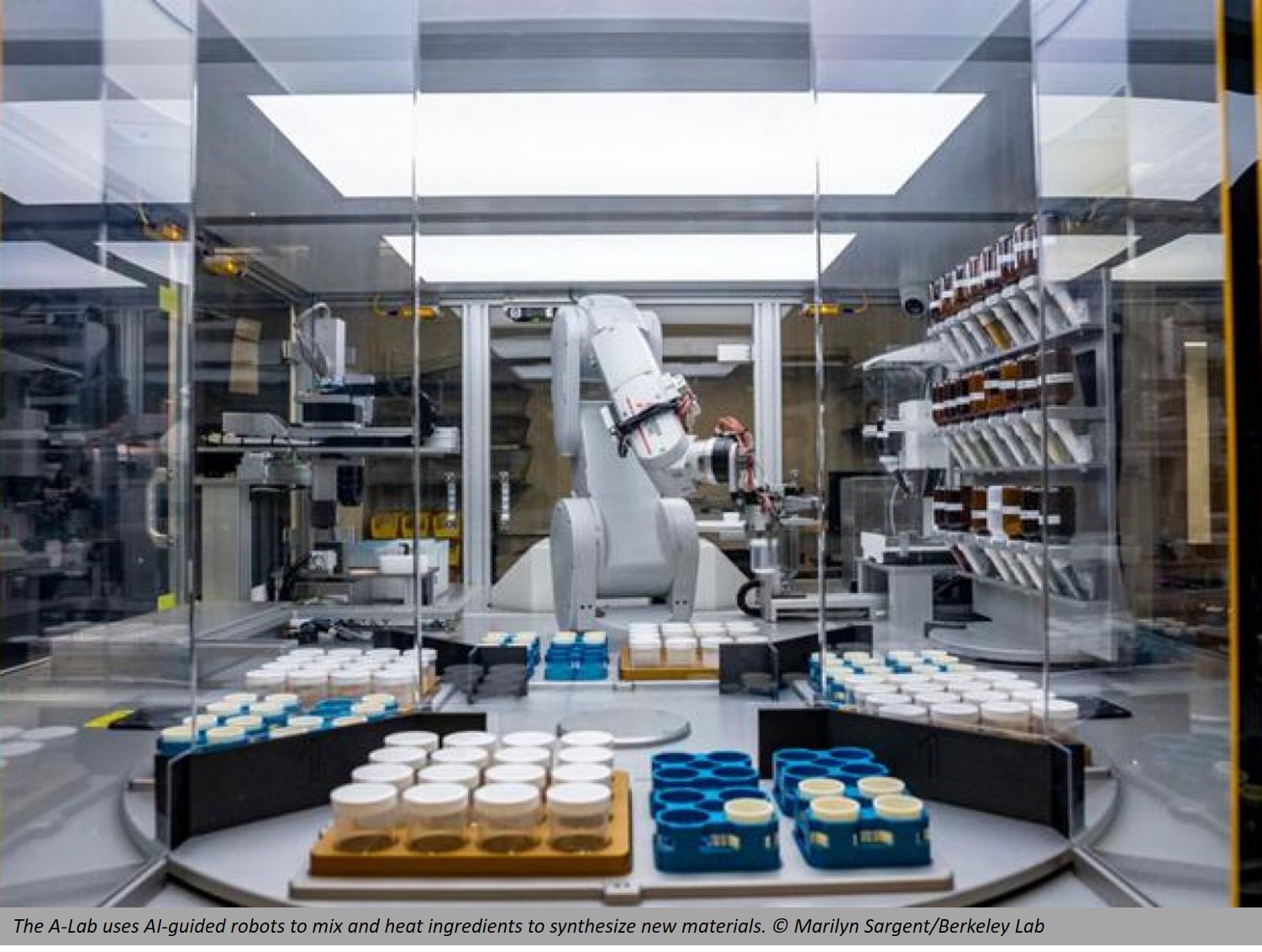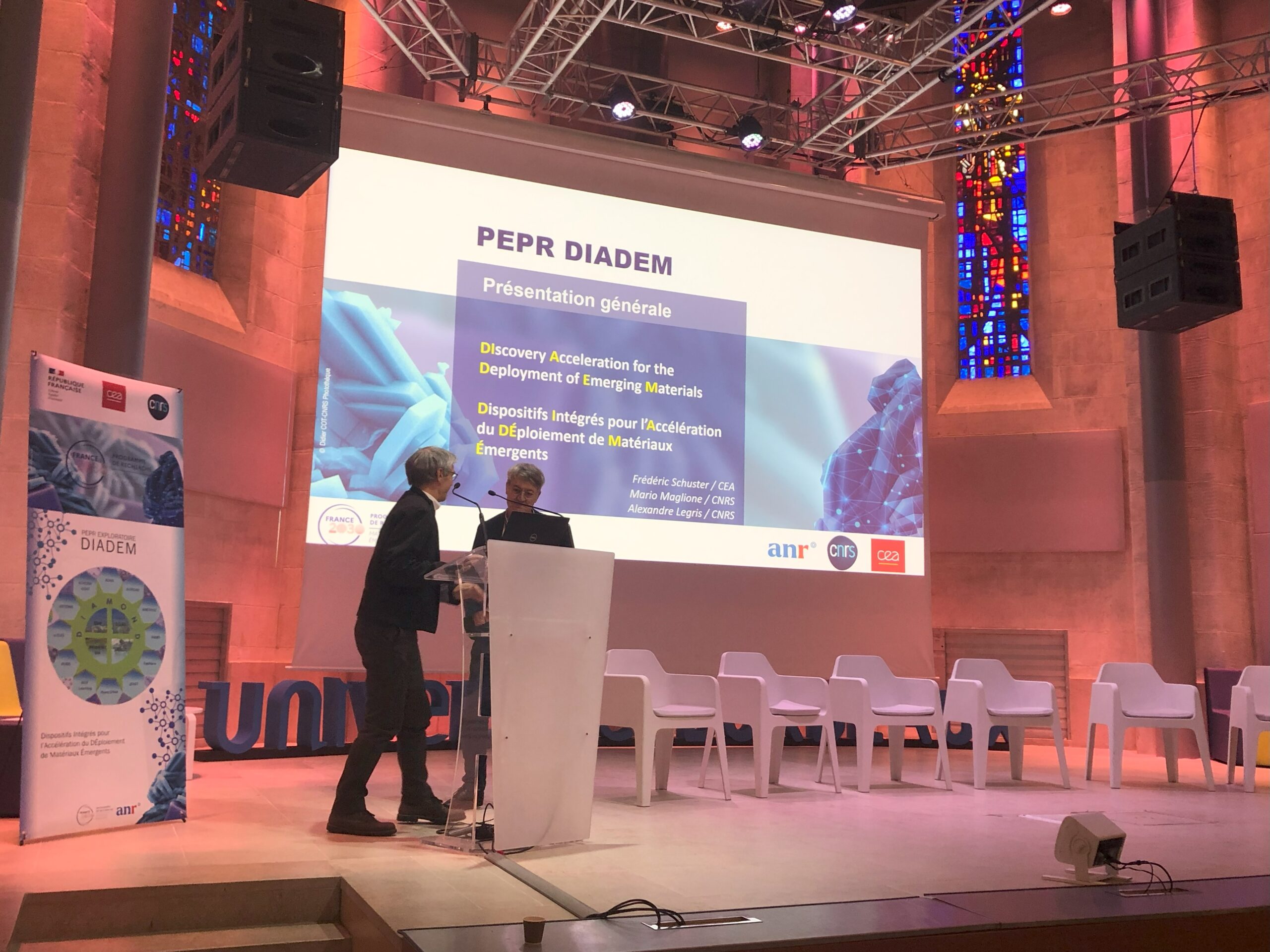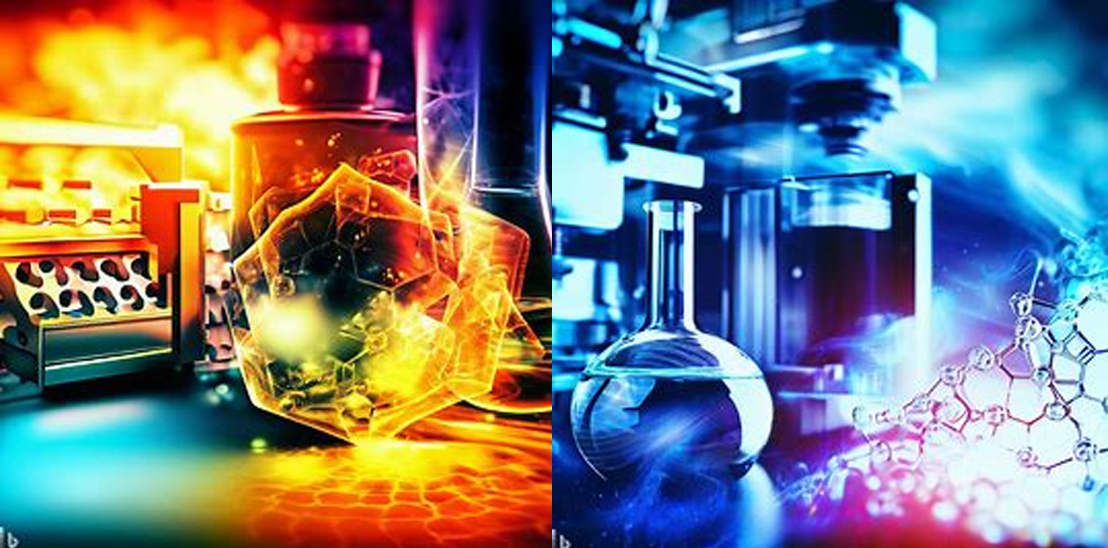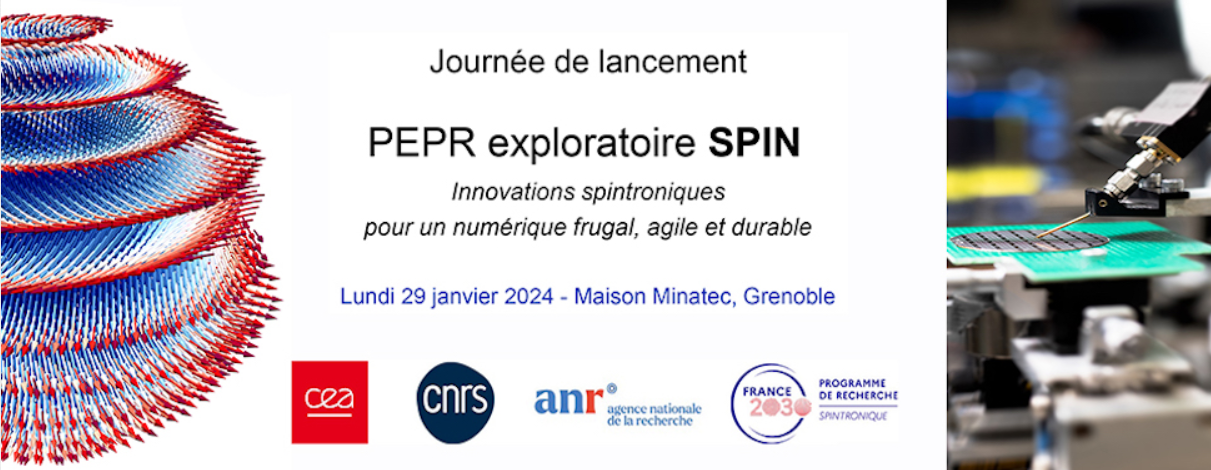
GNoME artificial intelligence and the autonomous A-lab laboratory combine to discover new crystals
Published on
Updated January 18th, 2023
A major breakthrough in materials science was shared by Google DeepMind and the Lawrence Berkeley National Laboratory in the journal Nature, highlighting the AI tool GNoME1,2 (Graph Networks for Materials Exploration) and the lab autonomous A-Lab1,3.
GNoME is a tool based on deep learning. Initially trained with existing databases, notably from the Materials Project (https://next-gen.materialsproject.org/), it made it possible to predict more than 2 million new crystal structures, among which 381,000 could be be stable. GNoME uses a combination of two deep learning models to predict the stability of compounds: one based on structures similar to known crystals, and the other based on chemical formulas.
In partnership with the Lawrence Berkeley National Laboratory (LBNL), materials predicted by GNoME were integrated into the Materials Project. LBNL has established an autonomous high-throughput synthesis laboratory, the A-Lab, which is an excellent example of the application of artificial intelligence, robotics and automation in the development of new materials.
This platform uses simulation calculations, existing bibliographic data and machine learning and active learning processes to predict synthesis protocols. The synthetic products are then characterized by X-ray diffraction (XRD). Profiles are analyzed via machine learning models. If the synthesis protocol does not produce the expected result, an active learning algorithm proposes an alternative synthesis protocol to improve the quality and yield of the synthesized materials. Thus, A-Lab has demonstrated its ability to quickly prepare compounds, with 41 materials synthesized out of a base of 58 proposed in just over 2 weeks with minimal human intervention.
This remarkable efficiency shows how automation and AI can accelerate research and development processes, paving the way for rapid and significant advances in many areas. Although the robustness of the results obtained by A-lab is currently debated4,5, the implementation of autonomous platforms undoubtedly requires optimizations but opens the way towards an acceleration of the discovery of new materials. The GNoME program has focused on crystals, but the techniques used to make its predictions pave the way for the discovery of other types of materials.
DIADEM is entirely in line with the same approach as that of the A-Lab with the progressive deployment of the DIADEM Discovery Hub, however with a greater emphasis placed on a broader “process” aspect than simple mild chemistry.
Finally, note that during the MRS Fall Meeting 2023 annual conference in Boston, 6 parallel sessions dealt with different aspects of accelerated material discovery, in particular via the development of autonomous platforms and the use of artificial intelligence.
For further information :
- https://www.nature.com/articles/d41586-023-03745-5
- https://www.nature.com/articles/s41586-023-06735-9
- https://www.nature.com/articles/s41586-023-06734-w
- https://www.nature.com/articles/d41586-023-03956-w?mc_cid=4841a47cba
- https://chemrxiv.org/engage/chemrxiv/article-details/65957d349138d231611ad8f7

Plus d'actualités


